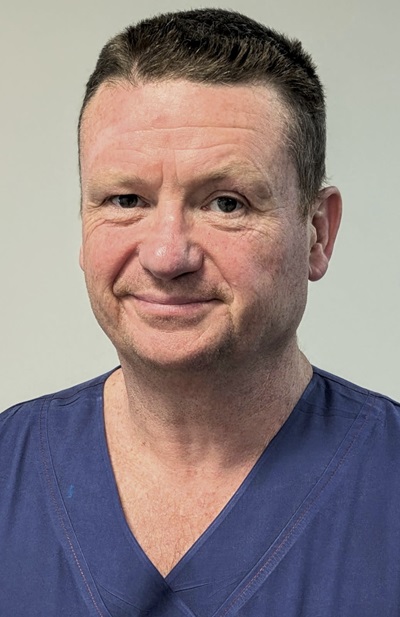2025 | Volume 26 | Issue 2

A/Prof Mitchell Hansen
The Select for Rural initiative is helping address the shortage of surgical services in rural, remote and regional communities.
Select for Rural is part of the RACS Rural Health Equity Strategic Action Plan to improve access to surgical services and health outcomes for people living outside metropolitan centres. Select for Rural aims to attract and appoint applicants more likely to work in remote, rural and regional areas in future.
According to the strategy, rural, remote and regional people have a life-expectancy of up to 13 years less than urban-dwellers, with poorer access to healthcare workers, including surgeons.
While 29 per cent of Australians and 15 per cent of Aotearoa New Zealanders live in rural areas, only 12 per cent of surgeons live and work rurally.
The problem is particularly acute when it comes to neurosurgery, due to the small number of surgeons trained in this specialty, and the costs of infrastructure needed for neurosurgical procedures.
The Neurosurgical Society of Australasia (NSA) is among the organisations working to attract rural Trainees through the Select for Rural program.
Under the program, extra points are awarded to applicants seeking selection into the SET program, with a likelihood of working in country areas, including living, working and studying in remote, rural and regional areas.
Applicants in areas of Neurosurgical workforce shortage in the Northern Territory (NT), northern Queensland and Tasmania, are also given preference when they apply for a training program under the ‘undersubscribed home region’ initiative.
These measures complement Train for Rural activities, including NSA’s requirement for Trainees to spend three years working across the Top End of Australia to provide experience in rural settings. These are for those Trainees who are from the NT, or the northern part of Queensland as their home state.
NSA’s immediate past president Associate Professor Mitchell Hansen is a Newcastle adult and paediatric neurosurgeon who provides outreach services to country New South Wales.
Having grown up in Bathurst, Associate Professor Hansen is aware of the value of country surgeons to rural communities.
“Coming from a rural background, I’ve got a soft spot for rural communities and understand what people are dealing with in the country.
“It’s important to have rural people working in these areas and giving them this support.
“We’re improving gender diversity, and adopting Indigenous selection criteria, within neurosurgery. As part of our work in improving diversity across multiple areas, we’d like to support people with rural backgrounds who are more aware of the issues country people face.”
A particular issue for rural patients is the travel required to access care, which can be stressful and expensive. It also means patients do not have the support of family and those within their community. And this travel can have dire consequences in situations where care is urgently needed.
Select for Rural, as part of the RACS’ Rural Health Equity Strategic Action Plan 2020, provides SET committees with evidence-based recommendations to build the rural surgical workforce.
A Select for Rural workshop in February, this year, convened by the Council of Presidents of Medical Colleges, attracted representatives from a range of medical specialties to provide an update on evidence around rural origin, rural medical school immersion, and rural prevocational experience initiatives.
National Rural Health Commissioner, Professor Jenny May, said changes to the selection process could help shape the rural workforce.
“As part of building a sustainable rural workforce to the future, the distribution of non-GP specialists is clearly an important focus,” Professor May says.
“Colleges have roles in selecting Trainees, supporting placements, and managing education and training to college standards.
“Selection, while only part of the picture, is clearly crucial if Trainees are to more likely to consider rural practice.”
Professor May says workshop participants agreed definitions, shared knowledge about weightings, and discussed more streamlined approaches for selection at network and College level.
A second workshop was convened by Committee of Surgical Education and Training (CSET) chair, Dr Philip Moreau and included all RACS specialty training committees and Boards. An update on National Geographic Classification Systems for Health, and on a growing evidence base affirming the impact of rural selection initiatives was provided. The implementation and early results of Select for Rural Initiatives within RACS were presented.
Associate Professor Hansen says Select for Rural could help tackle the maldistribution of surgeons across Australia and Aotearoa New Zealand and provide benefits for both rural communities and the surgeons who service them.
“In the country, people are very appreciative of your work, especially when they don’t have to travel a long way during what can be harrowing times in their lives.
“And it’s always nice to get a homemade jam that a patient might bring in.”